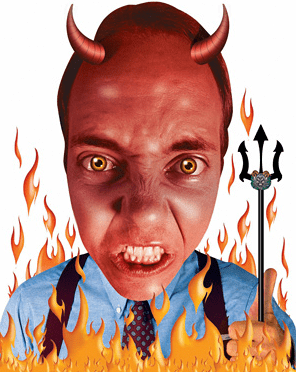 Stress. Who needs it?! The fact is, we all need it! Welcome to part 3 of my series on stress. In part 2 I discussed three kinds of bad stress: Acute stress, episodic acute stress and chronic stress. Each of them triggered by different things. In some instances the impact is short-lived. In other instances, it can lead to catastrophic consequences including depression and suicide. But not all stress is bad. In fact, without stress, psychologists would argue we could not achieve peak performance or perhaps any level of performance. Let’s examine the good stress in our lives – eustress.
Stress. Who needs it?! The fact is, we all need it! Welcome to part 3 of my series on stress. In part 2 I discussed three kinds of bad stress: Acute stress, episodic acute stress and chronic stress. Each of them triggered by different things. In some instances the impact is short-lived. In other instances, it can lead to catastrophic consequences including depression and suicide. But not all stress is bad. In fact, without stress, psychologists would argue we could not achieve peak performance or perhaps any level of performance. Let’s examine the good stress in our lives – eustress.
You may recall from part one I talked about the hormones and chemicals that are released during stress events. Their impact on the body, including their contributions to strokes and coronary artery disease, have been studied extensively. It should not come as a surprise then, to learn the person who uncovered the concept of good stress was an endocrinologist – the very people who study the hormones that also cause the bad effects of stress. While evaluating the consequences of stress, like anxiety and depression, it was uncovered that humans also experience productive stress.

Eustress compels you into action and helps you be your best. As a personal example, I experience eustress before every conference keynote or seminar presentation I deliver, even though I’ve given in the range of 2,500 to audiences that have numbered in the thousands. I still get nervous energy whether I am talking to five hundred people or fifteen people.
And, while I know there are some who will never believe this, my stress, manifested as nervous energy, compels me to rehearse before every presentation – even on topics I have spoken on hundreds of times. My rehearsal always include a run-through of the presentation slides, if I am using any (I often don’t).
Eustress compels you to be your best and do your best. It drives you toward achievement and success. Eustress can give you a definite competitive advantage. When you exercise, be it cardio or strength training, you are stressing your body. You are pushing yourself to excel. If not for the stress that drives achievement, you would never subject yourself to the rigors of a workout.
I remember when I played on the golf team in high school. While we had a pretty good  team, one of the best in the region, the coach always made us believe the other team was going to be difficult (if not impossible) to beat. He knew that if we went on to the course overconfident, our guards would be down and we would become complacent and lazy. In other words (and I don’t think he’d have ever described it this way) our stress levels would not have been optimized for peak performance. He had to stress us with the will to win. Had he ever told us we were outmatched and were going to lose, but go out and have fun playing, our will to win would have been gone and we would have been in distress.
team, one of the best in the region, the coach always made us believe the other team was going to be difficult (if not impossible) to beat. He knew that if we went on to the course overconfident, our guards would be down and we would become complacent and lazy. In other words (and I don’t think he’d have ever described it this way) our stress levels would not have been optimized for peak performance. He had to stress us with the will to win. Had he ever told us we were outmatched and were going to lose, but go out and have fun playing, our will to win would have been gone and we would have been in distress.
In emergency situations, eustress compels you into action and helps you rise to the occasion. The energy from eustress is channeled toward productive, worthwhile goals. Remember the grandma who lifted the car off someone? She was experiencing eustress. She had a goal and was driven to succeed to the point of almost super-human strength.
For the body and mind, however, stress is stress and it is indistinguishable. The same chemicals are released and do the same things to your body whether it’s stress from a bad relationship, stress to perform well during a speech, or stress because one of your kids just ate the last bit of ice cream you were hoping to have for a bedtime snack.
Perhaps one of the simplest ways I know to bring meaning to the difference between good stress and bad stress is by tying stress to motivation. In my leadership classes we often end up discussing, with little surprise, motivation, which is not the subject of this article so I won’t be going into detail. What I will share are two emotions that drive motivation and it is in the context of those emotions that I will differentiate distress from eustress.
Fear and Desire
Fear is the great inhibitor. It binds your mind up and causes stress out of concern for consequences. Fear helps you see all the ways you cannot do something and all the potential harm that will result. Conversely, desire is the enabler. Desire frees your mind up and evokes a stress response that compels you toward success. Desire helps you see all the ways you can achieve your goals and all the potential good that will result. Both fear and desire create stress. The former distress and the latter eustress. But there’s more.
Control
The second component that differentiates distress from eustress is the degree of control you have over the situation. If you feel you are in control of what is happening and you can direct the actions that will lead to success (or at a minimum prevent failure), you are being driving by eustress. If you feel as though you are not in control of what is happening and the actions contributing to your stress are under someone else’s control and the other person (or the environment) can directly impact your failure, you are being inhibited by distress.
Finally, let’s look at the worst possible scenario. The things that are causing you the greatest fear of failure or harm are being controlled by someone (or something) else. You are helpless, or so it may seem. People gripped by this type of distress often cannot see any way out of their situation even though there may be many ways out.
Incident scene stress

The stress experienced at an incident scene can be distress, eustress or a combination of the two. It boils down to whether you are being driven by desire – toward a successful outcome, fear – to prevent an undesirable outcome, and how much control you have over the situation. Confident responders may feel they are in control of their situation and circumstances at an emergency but, deep down, they know there are way too many things that can go wrong that are outside their control. Thus, both stresses are in play.

Administrative stress
Stress is not limited to emergency scenes. There are plenty of stresses impacting you in day-to-day non-emergency operations also. The same rules apply. If the stress is being triggered by a compelling goal for achievement and the successful outcome is something you desire and are passionate about AND you are in control of your work product and your destiny, you will be stoked by eustress. Conversely, if your stress is caused by a constant fear of consequences and you’re work is not rewarding and you are being controlled by a bad boss, you are going to experience distress.
About the Author
Richard B. Gasaway, PhD, CSP is widely considered a trusted authority on human factors, situational awareness and the high-risk decision making processes used in high-stress, high consequence work environments. He served 33 years on the front lines as a firefighter, EMT-Paramedic, company officer, training officer, fire chief and emergency incident commander. His doctoral research included the study of cognitive neuroscience to understand how human factors flaw situational awareness and impact high-risk decision making.
_____________________________________________________

If you are interested in taking your understanding of situational awareness and high-risk decision making to a higher level, check out the Situational Awareness Matters Online Academy.
CLICK HERE for details, enrollment options and pricing.
__________________________________
Share your comments on this article in the “Leave a Reply” box below. If you want to send me incident pictures, videos or have an idea you’d like me to research and write about, contact me. I really enjoy getting feedback and supportive messages from fellow first responders. It gives me the energy to work harder for you.
Let’s Get connected
Facebook: SAMatters
LinkedIn: Rich Gasaway
LinkedIn: Situational Awareness Matters
Twitter: Rich Gasaway
Youtube: SAMattersTV
itunes: SAMatters Radio
Stitcher Radio: SAMatters Radio
Google Play: SAMatters Radio
iHeart Radio: SAMatters Radio

Pingback: Stress: The Nemesis of Situational Awareness | Situational Awareness Matters!™